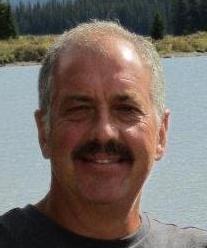
BECOMING A BRICKLAYER wasn’t a sure thing in my family. When I reflect on my teen years, I’m surprised it ever happened.
In fact, the only reason it happened is Dave Schlabach.
Let me remind you of my size back then— just in case you don’t remember. Just under five feet, scrawny, with the skinny body of a bookworm. Oversized plastic glasses and a shock of brown hair swung over my forehead, hiding my eyes when I leaned over.
There were two reasons I wanted to work for Dave.
First, I could no longer work in my father’s auto body business, thanks to a lifelong affliction — eczema. The chemicals in his shop eviscerated the skin on my fingers. It turned them dry as paper and caused massive itching, which left strands of raw, bloody flesh showing.
And still, they itched.
In a high school paper, I had learned sunshine was good for eczema. I’d get plenty of it doing construction.
A second reason lay in my self-image. I was a wimp, but I didn’t intend to remain a wimp. I was tired of showing up for Phys Ed and being chosen last. I wanted to be able to arm wrestle and win.
I had also seen what construction work had done for my guy friends. Girls seemed to dig their tans and rippling muscles.
I wanted what they had.
And so the next spring, I approached the biggest, baddest construction worker in our Amish-Mennonite community.
DAVE SCHLABACH was the silent type — but his voice was firm and carried clearly, especially when he uttered a wry, sarcastic remark. Although he rarely voiced them, he had clear opinions.
Physically, he dominated any room, his shoulders stretching wide, towering above most men. He seemed the gentle giant. But I knew from my friends that he was also a fierce driver, and one of the fastest producers in the trade.
He would turn me into a man, I was sure.
I knew it wasn’t a guarantee, of course. My best friend, one of the top athletes in my class, had tried working for him and hadn’t lasted a day. To this day, I have no idea why I thought I could do construction work. Perhaps I counted on my stubbornness. When I believed in something, I knew I wouldn’t quit.
Of course, so far, I had obviously not believed in any of my previous jobs — because I had quit or been let go from every one of them.
I wanted a job that would build my body. Working for Dave would create muscles. I was desperate to lose my wimp status. I was ready to beg.
But Dave hired me on the spot.
“I could use a good man,” he said, ignoring the fact there was little of the man about me. “Can you be ready at 5 a.m. Tuesday morning?”
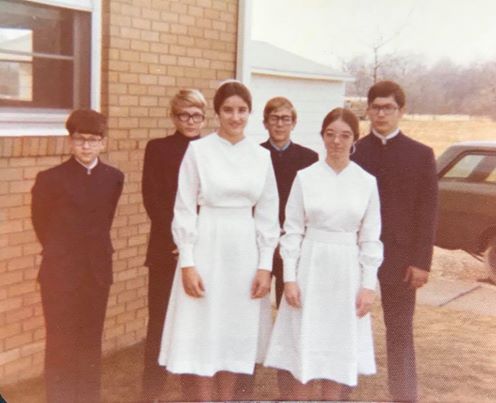
ON TUESDAY MORNING, a massive pickup truck towing a concrete mixer pulled into our drive at 4:55 a.m. Wearing the new leather work shoes I had purchased the day before, I bolted down the last bite of my mother’s toast, and headed out the door, carrying a brown paper bag with a lunch my mother had prepared for me.
As the passenger door opened, I was assaulted by smells of concrete and mold. Inside, an Amish man with a black beard and friendly eyes welcomed me, told me his name was Lloyd. Then he pushed his hat down over his face, leaned back, and promptly fell asleep.
By the light of the dash, Dave was alert, his eyes focused as he drove. Occasionally, when the truck stopped at a red light, he scribbled notes on a pad on the dashboard with his left hand. Then the roar of the engine filled the cabin as we pushed forward.
He ignored me. I should have grabbed the hour of sleep. But I was too nervous. The closer we got to the job, the more convinced I became that this would be my first and last day of work. Once he saw how wimpy I was, he’d fire me on the spot.
An hour later, when we arrived at the job, the day just beginning to break, Dave introduced me to another helper, a young man who arrived in a beat-up Dodge and smelled of stale beer.
“His name’s Luther,” Lloyd told me.
The three men quickly set up the mixer next to a gigantic sandpile as I watched, then began unloading the truck. I stood stupidly, uncertain of what to do until Lloyd began pushing things into my hands, telling me where to carry them.
I watched him set up the ramp leading down to the basement. Lloyd carefully created a block pillar, crisscrossing the block to create strength, then stretched the planks.
“You’ll be bringing the wheelbarrow down on this,” he said, kicking his foot down on the two-inch thick plank and eyeing me skeptically. “That’s your job today — don’t let us blocklayers run out of mud.”
I heard the roar of a small engine behind me. I looked askance at the ramp. Lloyd chuckled.
“You’ll figure it out,” he said. “Watch Luther bring down the first load.”
Which the young man did, easily, handling the wheelbarrow with ease. He trotted across the first plank, paused to adjust his grip, then turned and plowed down the second ramp with a whoosh of gravel and a crashing stop in front of mudboard where Dave had just grabbed his trowel.
Dave glanced over at me. “Mud,” he shouted, his voice raw. “Fill every board. We’ve got block to lay.”
I grabbed the short shovel and began loading the boards. The mud seemed to disappear like magic as the men slapped down two rows, then dropped blocks into place. They seemed to be following the lines stretching between two poles along the wall.
Luther grabbed the empty wheelbarrow and headed up the ramp.
“Come on,” he said. “I’ll mix while you bring down a load.”
I had no idea the entire thing was a setup.
MOMENTS LATER, I found myself balancing a massive wheelbarrow on a muddy path, carrying an overload of 350 lbs of slippery mud which slopped over the sides as the wheelbarrow swayed. I pushed it forward, then set it down. I peered over it.
Below me yawned a gigantic hole, the rough contours of what would become some homeowner’s basement. Down inside that hole, the mud was disappearing from the boards, scooped up trowel by trowel by the blocklayers, whose skill and strength allowed them to manhandle 40-lb cinder blocks with ease.
The air smelled damp from the recent downpour.
Again, I considered the ramp, tried to stoke my courage. In the next 45 seconds, I needed to steer my overloaded wheelbarrow down that ramp without falling off. My heart thumped madly. I could imagine the crash if I fell — my broken, little body.
Why had I signed up for this? I paused but heard a roar coming from the basement. It was my new boss, and he was pounding on the mudboard. His voice was clear, cutting through the early morning mist.
“Mud! I need mud, now!”
Behind me, the mixer turned off. Out of the corner of my eye, I saw the other helper, a stocky lad with a grin splitting his face, heading towards the ramp to rescue me.
It was the moment of decision. I could either push the wheelbarrow through this death-defying drive — with me certain to fall off the side of the plan, the heavy wheelbarrow landing on top of me, probably killing me — or I could go home.
Humiliated.
I waved Luther away. He was not about to take over. I needed to prove myself. I tensed my body, lifting the wheelbarrow handles, struggling to balance the heavy load.
As I pushed the wheelbarrow onto the plank, I felt my heart scratching its way up into my throat. High above the basement floor, I wrestled to keep the swaying wheelbarrow from dropping on either side.
The first plank wasn’t very steep, and I arrived safely at the pillar. I maneuvered the heavy object to the left, sweat pouring off my forehead and into my eyes, clouding my view.
It was the second plank that did me in. I hadn’t realized the steepness of its drop — sharp and sudden. I tried to pull back but then gave up. The wheelbarrow rushed ahead, with me trying to keep it from tipping to either side, my speed increasing.
We reached the bottom.
But instead of the “whoosh” of the front wheel hitting the gravel, there was a sudden jolt as the frontspiece dug into the ground. The wheelbarrow stopped, but I kept going, grimly clinging to the handles, my entire body rising into the hair. I lost my grip on the handles, my body flipping over the wheelbarrow and — SPLAT! I was looking up into a cloudless Ohio sky, my back pasted firmly to the ground.
The silence that followed seemed eternal. I couldn’t breathe.
Then I saw Luther’s unshaven chin hover into view, his eyes gazing at me, his face torn between worry … and something else. He offered me a hand, which I grabbed.
He pulled me to my feet. The other men stared at me. They seemed frozen, as if in shock.
Then suddenly, as if on command, there was an explosion of laughter, roars, and screams. Lloyd was bent over, the trowel hanging akimbo, tears of laughter streaming down his cheeks. Even Dave was chuckling, I heard and saw through the fog of pain as he turned back to his work.
Luther and I began scooping up what mortar we could, tossing it back into the wheelbarrow. Suddenly, Lloyd left the wall, racing towards us. I fully expected him to chew me out. I knew mortar was expensive, and I’d just wasted an entire load.
But when Lloyd arrived, he was still chuckling.
“Everyone drops a load at the beginning,” he said when he could finally quit laughing. “But you — that was some flip. Maybe you should become a … what do you call it? A gymnast.”
Then he dropped to his knees, another gale of laughter taking him.
I was relieved. I had fully expected him to chew me out. I tried to laugh, politely. But even laughing was painful. I was still catching my breath.
IN THE WEEKS that followed, I began to enjoy the rewards of success. Although I hated the job itself, I relished the evenings and weekends, having proved to my friends I knew how to work hard. For the first time, I regularly felt sore muscles ache.
There was pleasure in that feeling.
The days were long — sometimes we commuted over an hour each way to pour a footer, lay up a basement, or brick an office building. After I graduated high school, we even drove out of state on weeklong trips to build the foundations of motels or office buildings.
These trips taught me something about Dave. During the day as we worked, he was every bit the driver I had been warned about. He got paid per block, so the faster his men could lay them, the more money he made. He used whatever motivational tool he could find to inspire his crew — and that usually meant yelling at us.
No one roared quite like Dave when his mudboard was empty. The other layers — Lloyd and Dave’s cousin Greg and later his brother Tim — would also yell for more materials, but there was something different in Dave’s roars, an urgency, perhaps an authority, that made me run.
I found Dave confusing. He could be friendly at some points, but sharp and driven at others. I could never figure out who would show up — the Driver or the Gentle Giant — and it kept me on edge.
But even from the first, I saw that the moments when Dave would be at his most relaxed were during the days when the rain hit us.
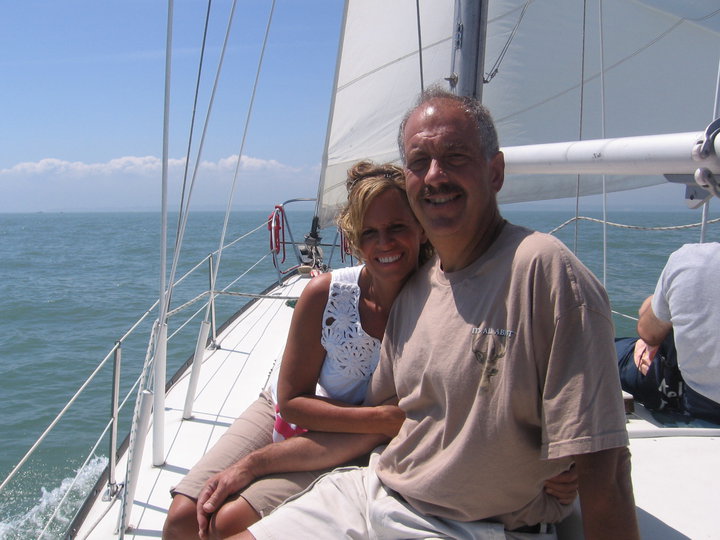

I PUSHED ASIDE my coffee cup and started in on the three glazed donuts I had purchased. They were soft, covered in a silky melt of sugar. Around me, the voices of the other crew members laughed and joked. Outside, the skies drenched the Akron streets outside this Krispi Kreme coffee shop. I picked up the first donut.
A crew can’t lay block or brick in the rain, so when leaden skies turned into a downpour, we covered the mortar and the mudboards, flipped the engine top down on the mixer, and sloshed our way to the truck, where we piled in, all four of us smelling of sweat and mud and wet.
Rainy days were the best … and the worst. Even today, they are some of my fondest memories of doing construction: sitting and drinking coffee and downing delectable donuts while listening to my boss relax and become human to me. But the downside was marching back out into the rain and mud.
I looked around at the other crew members, then grabbed the second donut, cramming it down my throat.
One never knew when the rain would stop.
The best thing that could happen was for the cloud cover to conquer the skies, for the drizzling rain to stretch from horizon to horizon. Yes, it would cut into my paycheck, but I’d worry about that when paycheck time happened.
I’d gained some muscle in the two months since I begun work, but I still hated my job. In a few minutes, the rain would stop, and we’d go back to the block basement (which would have become a swimming pool), and I’d be carrying the same weight I did when the ground was dry, skiing the same wheelbarrow through slippery mud. Sometimes I’d fall.
Once we got back, I’d get no sympathy from my boss for difficult working conditions. Dave would need to make up the time lost. Our day might extend to 12 hours, total. He had commitments to meet.
I didn’t want to go back to work. I prayed that we’d get rained out. Every bone in my body ached from getting up at 4:30 AM, eating breakfast silently as my father read the Bible to me and as my mother packed my lunch into my new Coleman’s lunch cooler.
But as I swallowed the last donut, I heard Dave’s voice. “Well, Lloyd, it’s clearing up there, isn’t it? To the West?”
And I mentally braced myself for the remainder of the day.
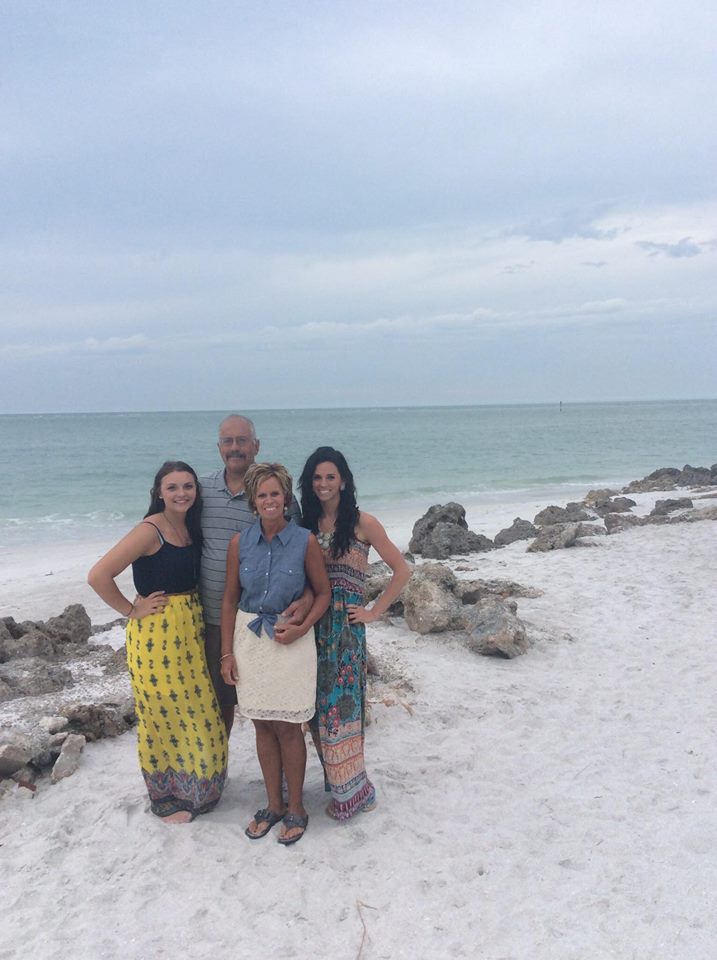

I SOMETIMES ASK myself why I chose to stay.
From 1978 when I began, I spent every summer working for Dave until I began my master’s degree in 1996.
Yes, I did build myself physically, gaining muscular strength and endurance, but I hated the work, which at first only paid minimum wage.
And yes, I learned a trade, which I’ve used during difficult times. When I returned from Ohio in November 2009 to take care of my parents, I needed a job quickly, and substitute teaching didn’t earn enough.
So I returned to the trowel and wheelbarrow.
But those weren’t the reasons I remained with Dave. No, there was something else I wanted.
I stayed because I was determined to become what people called a “real man,” someone in control of my own destiny. Becoming that man meant reaching the demanding standards all the men on the crew — and my peer group — bought into.
Real men carried their weight.
Today, I don’t call this becoming a man. I call it becoming a leader — and it works as well for girls as well as boys. As a high school teacher, I believe my primary mission is to build young leaders — and teaching a work ethic is the foundation of that mission.
When my students choose to stay longer at a car wash fundraiser, or when they choose to stay late to put the newspaper to bed, or when they choose to give of themselves selflessly for the good of the group … I know I’m succeeding in my mission. And the lessons I learned from Dave were foundational to my education as a leader, as a teacher, even as a husband.
While working for Dave, I mastered the patience and perseverance I needed to be successful in life. Summer by summer, day by day, minute by minute — I gained a work ethic.
I gained it by continuing to push wheelbarrows and carry heavy block in the scorching sun. I gained it sloshing through muddy basements when the day’s end seemed like it would never happen, or when a blazing afternoon seemed like an eternal hell.
I gained it under the demanding leadership of my boss, who hired a wimpy scrap of a boy and turned him into a man.
WHAT I FOUND paradoxical about Dave was how easily he could turn into a laid-back conversationalist. These times sometimes happened when it was just the two of us driving home from a job.
Today, having led young people, I understand his responses. Most of the time, Dave was under pressure to produce. A mistake in timing when it came to a delivery of concrete, for example, could mean losing thousands of dollars.
So although I didn’t comprehend the reasons, I treasured those moments when things were running smoothly, when Dave didn’t need to be thinking ahead, when he had time just to talk.
I remember one sun-baked afternoon coming home early — just the two of us. We were driving north on Rt. 619 through Greentown, Ohio, and Dave was particularly happy. We had just finished a big job, and Dave had a date that night.
As we rolled into town, we saw two children playing on a swing in one of the yards. I was half-asleep — I had learned by then to keep my mouth shut when he was working things out internally — when suddenly, I heard his voice.
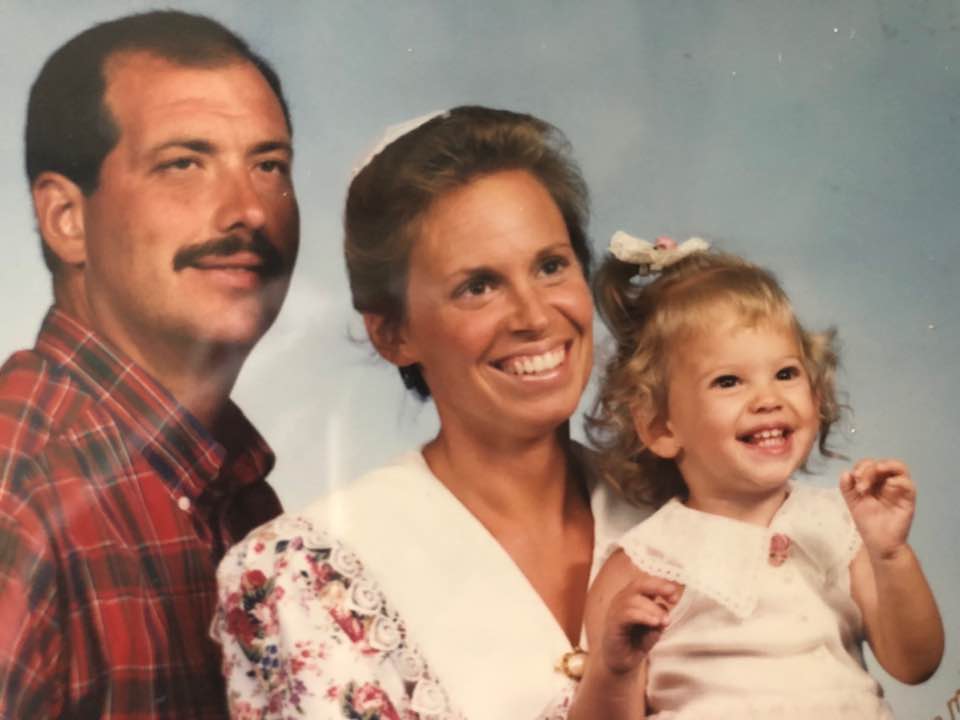
 “Ever wish you could go back in time? Be a child again?”
“Ever wish you could go back in time? Be a child again?”
I shot a glance at him. It was such an unusual question for him — he didn’t often speculate in imaginative topics.
“Sometimes,” I admitted. “Do you?”
“Yes.” There was an edge to his voice. “There are times I wish I didn’t have the constant stress. Especially when I have to deal with guys who can’t bother to show up.”
I knew he was frustrated, especially, by one of his latest employees, Joshua, whose job attendance was skimpy, at best. At times I wondered why he just didn’t fire the guy.
He didn’t usually talk negatively about his employees. But during another conversation, after we’d been waiting one morning at 5:30 a.m. for 15 minutes, he exploded.
“You wouldn’t believe how difficult it is to get good help. People who just show up.”
He eyed me. I knew by then I wasn’t his best employee. But he had also never threatened to fire me.
“One of the reasons I appreciate your work,” he said, his voice suddenly warm, “is because you always show up on time. That’s worth a lot more than being the fastest worker I have.” He sighed. “I wish some of these guys could figure that out.”
Those moments when Dave showed his vulnerability locked in my loyalty. Moments in which he shared honestly about the struggles he faced as a boss — getting work, keeping employees, dealing with management issues — helped me see the humanity behind my hard-driving boss.
It also showed me how effective leaders think.
Today, I know something about introverts. They process internally. I’m an extrovert — so all my thinking takes place aloud or on paper. I can drive introverts crazy. It took years for me to understand the difference in our personalities.
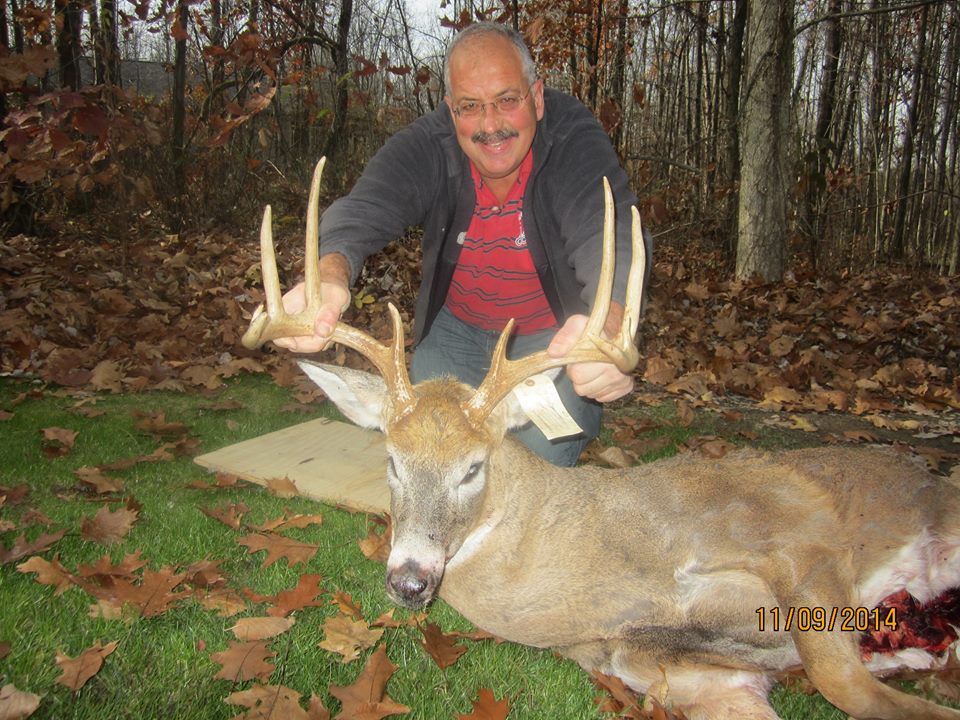
 THERE WAS AN even richer gift Dave gave me, something I couldn’t have defined back then, something Dave passed on to me … which made him one of my soul teachers.
THERE WAS AN even richer gift Dave gave me, something I couldn’t have defined back then, something Dave passed on to me … which made him one of my soul teachers.
A moment that stands out to me occurred when I was 17, having just graduated from high school and begun what I thought was a bricklayer’s career.
It was early afternoon, and the August heat was baking us slowly, the sweat streaming from my forehead as I scrambled to help Dave move the scaffold up to create the fifth level.
Even after three years of work, scaffolds still made me nervous. They were mounted on blocks below us, as solid as we could make them. But I never trusted them. When we scampered up the scaffold, slamming bricks from plank to plank up to the fifth level, or when we gripped the tongs and swung the bricks high … well, anything could happen. Sometimes a tong of bricks collapsed, dropping all its clutch. Sometimes the guys below had to dodge.
Below me, Lloyd and Luther had begun to move the first load of brick up to the second level. Above them, the scaffold was nearly empty.
We were laying up a brick chimney on the side of a luxury home in Hudson, Ohio. As usual, Dave was in a hurry, stripped to his shorts, sweat pouring from his sun-bronzed back as he worked.
I pause to breathe, glancing out over the construction site. The scaffold was about 40 feet in the air. I was halfway up. I turned to climb up and help Dave. And that’s when I felt it. A slight shift.
I froze.
Usually, the scaffold stabilized. But this time it didn’t.
Slowly, the entire scaffold began to sway — away from the building.
When I reflect on that moment today, I still shudder. I’m not sure how I made the choices I did. But as the scaffold tower toppled, slowing carrying all of us down in what would become a gigantic, twisting crash of metal against metal and block and earth, my body came alive, acting instinctively.
I climbed up the tower.
I reached the top just in time to join Dave as he rode the scaffold all the way down. Just before we reached the ground, we jumped clear of the crashing scaffold.
It was the loudest crash I’ve ever felt or heard.
As the echoes died away, I climbed to my feet, scanning the tangled metal covering the brick-strewn ground. I took stock of myself. I hurt all over, but my wounds were minor and incidental. No bones were broken, although I ached all over.
I looked around. Lloyd … Luther … Dave … they were all on their feet, rubbing bruised body parts, studying the scaffold. Lloyd and Luther, I later discovered, had leaped off the side, away from the scaffolding.
There was a lot of luck here, I thought.
I glanced at Dave, expecting that he would tell us it was time to go home … we should give up for the day. Surely we weren’t going to put the scaffold back up.
But that’s exactly what Dave was doing. He was all business, starting to pull apart the scaffolding. The other men jumped to help. I stared at him.
We had just escaped certain death, and he was acting as if nothing had happened. He believed work should just continue?
He glanced over at me, taking in my horror and confusion.
“You hurt?”
He knew I wasn’t. I was walking, wasn’t I?
“No, I’m okay.” It would have been unmanly to complain about the eight large bruises that covered my body. (I counted them later.) Like Dave, real men picked up and kept working without complaint.
He turned and kept working. But I heard Lloyd’s murmur clearly enough.
“Come on, Steve. Back to work. This brick isn’t going to lay itself.”
But this time, Lloyd didn’t laugh.
I NEVER ASKED my boss, later, as we became friends, how scared he must have been. How difficult it was to set up the scaffold and keep going. Anyone, or all of us, could have died.
The fact that we kept going after that —I easily could have quit — is somewhat astonishing in recollection. The workplace had become a place of danger — literally a place of life and death. But I persisted.
Today, educational philosophers often talk about an amorphous quality that refers to perseverance. It’s called grit. Although I didn’t know it then, I somehow ripped a bundle of grit from the shattered metal that day and kept going.
I STAYED IN touch with Dave Schlabach as I grew older, long after I left the construction industry. I discovered he could talk easily and rapidly when he wasn’t on the job — he once admitted to me that the reason he constantly made To Do Lists was because of his poor memory.
He was being modest. Although he chose not to go to college, he was actually a member of Mensa, the high IQ society that “provides a forum for intellectual exchange among its members.” He once admitted to me that he hated construction work, but it was too good of a way to make money, and he just couldn’t leave it.
Why waste money and time on college?
Dave showed me how to work hard. He did it by working harder than any person I’ve ever known. In the words of construction workers, he “hustled.” This ability to drive myself was a gift I gained by watching Dave model a superb work ethic.
I didn’t gain this naturally.
When I began leading young people, I found this same drive had transferred to me. It has served me well as a teacher. When I’m preparing for class — grading papers, even helping kids during a car wash for a fundraiser — I never wonder whether I’ll have the energy to do the work I need to do. I know that someone taught me there are no limits to my work ethic.
That someone was Dave.
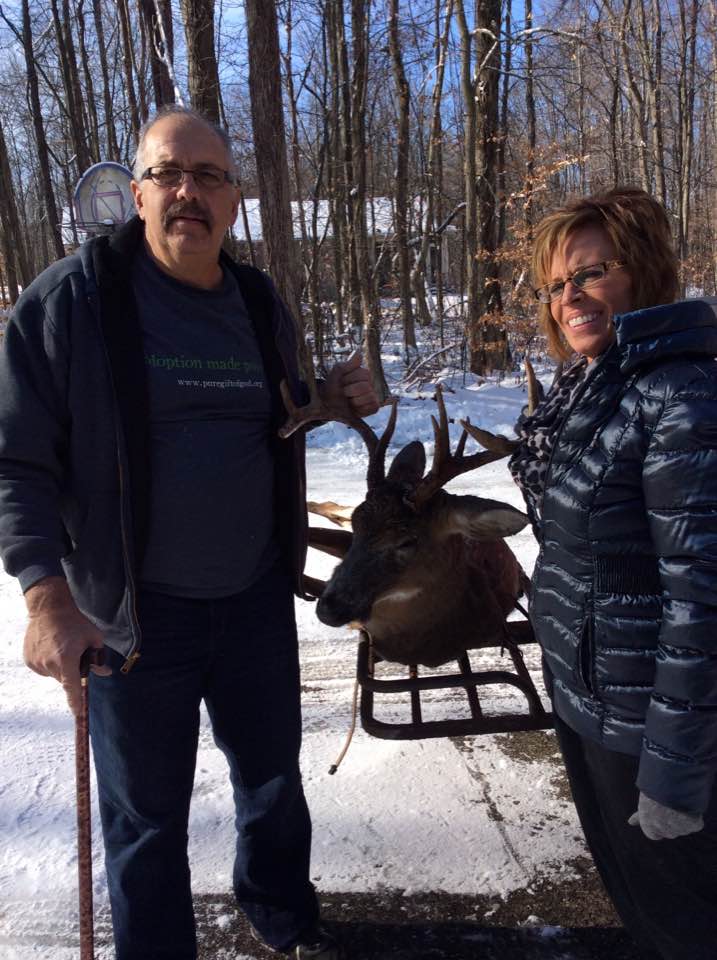
I WAS LIVING in Seattle on December 17, 2016 when I heard on Facebook Dave Schlabach had passed on. His wife Angela reported on the disease that took him at the age of 60, a rare degenerative condition called Multiple Systems Atrophy. It often presents as Parkinson’s, and scientists still don’t know how people contract it.
His untimely death made me reflect on his life’s impact. Until I began working for him, I didn’t know how to put in a 12-hour day of hard labor and be confident I’d be able to get up the next day and complete another. I didn’t have the energy to keep going in spite of any obstacle that comes my way. I didn’t know what it was like to look death square in the eyes and keep working.
I wish I had taken the time to thank Dave. Somehow, the time never seemed right.
Or maybe I have. In many ways, my work as a teacher and adviser to high school students — striving to pass on to them the work ethic I gained from Dave — is the best way to express my thanks to a mentor who did so much to shape my life.
That gift of grit is the primary reason I’ve been able to thrive as a teacher and writer, overcoming the obstacles I’ve faced and conquered across my career.
It’s why Dave was such an effective soul teacher for me.
Note: Some of the names have been changed to protect people’s privacy.


Leave a Reply